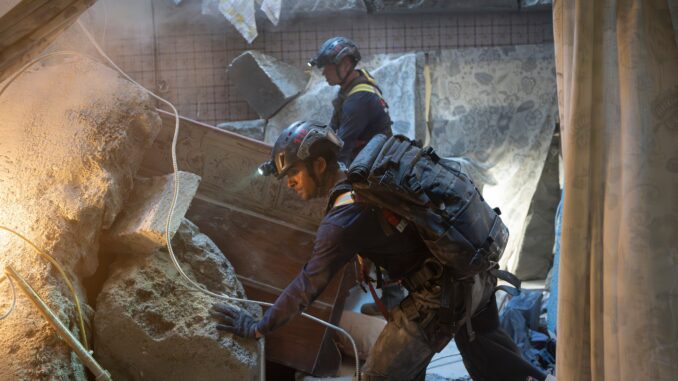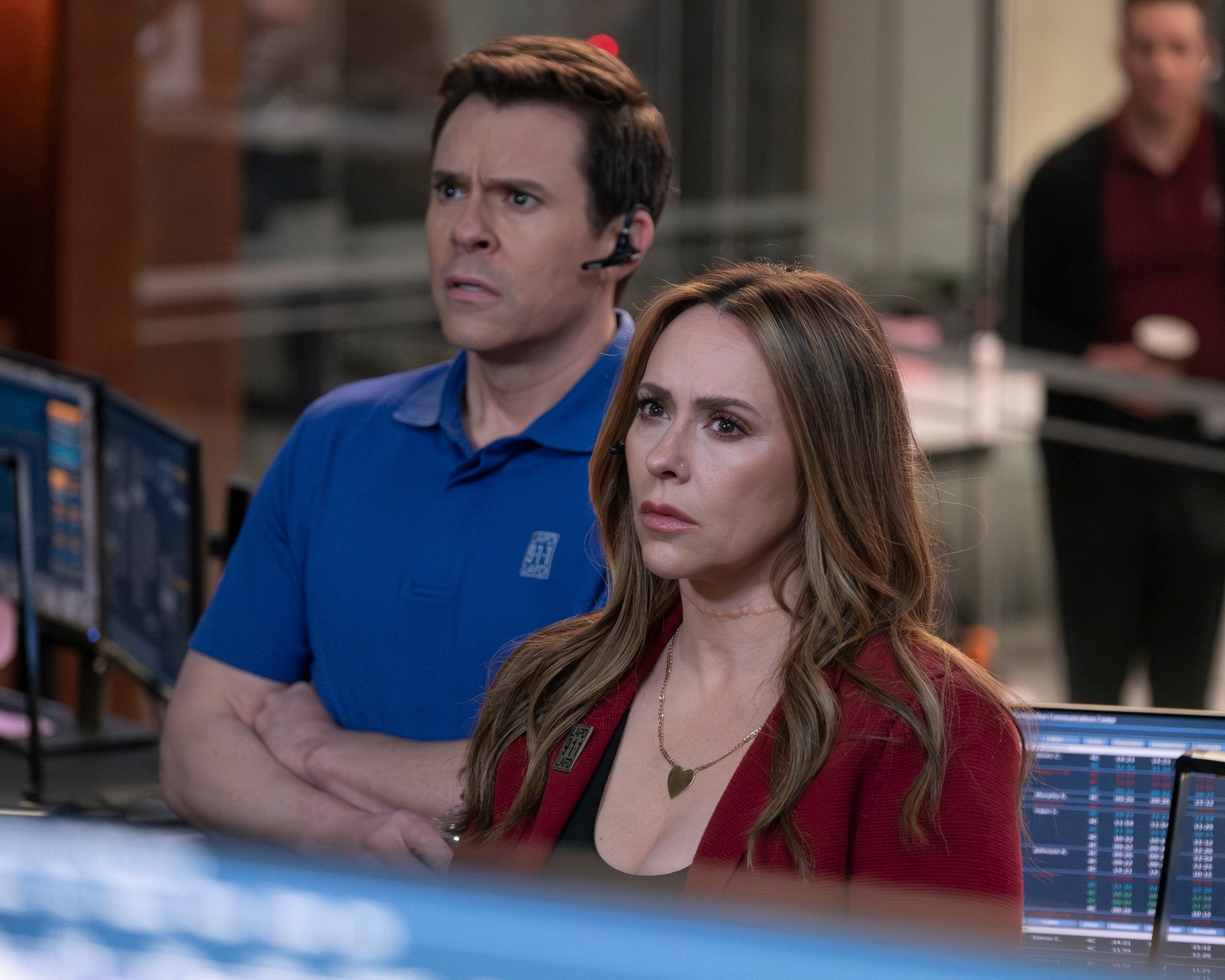
It is always shocking when a main character on a television show dies. Who can forget Ned Stark (Sean Bean) getting killed off Game of Thrones or Derek Shepherd (Patrick Dempsey) dying on Grey’s Anatomy? Every time the writers have a main character exit the series, there’s a chance that the audience won’t want to continue on with the storytelling. However, it’s still imperative for most shows to portray real life, which, of course, includes both life and death.
In recent years, there has been one main character’s death that has completely taken fans by surprise, and has led to some major uproar over their exit. Captain Bobby Nash (Peter Krause) met his maker on ABC’s 9-1-1, and although it’s tragic that Bobby is no longer among the living, the series was actually pretty smart to finally kill off one of its main cast members. The only mistake the writers made is that this action wasn’t taken way sooner in the show’s run.
Let’s be real: ‘9-1-1’ had all the ingredients to be a thrilling, heart-stopping drama. But somewhere along the ride, it stalled. Why? Because it never truly shocked us when it counted. Fans were left waiting for that big, gutsy move — the kind where a main character bites the dust and everything changes. But that moment? It never came soon enough. In this article, we’re breaking down why ‘9-1-1’ desperately needed a jaw-dropping character death much earlier, and how doing so could’ve reignited the emotional sparks, upped the stakes, and reminded us all why we tuned in week after week.
The Power of Shock Value in TV Dramas
What Keeps Us Glued to the Screen?
Let’s face it — viewers are thrill-seekers. We crave unpredictability. Great shows like Game of Thrones, Grey’s Anatomy, and The Walking Dead understood this early on. When a major character suddenly dies? That’s when audiences feel something real. It’s not just about surprise; it’s about shaking the foundation.
Playing It Safe = Boring Storylines
The Problem with ‘9-1-1’’s Emotional Safety Net
Every season, we saw car crashes, earthquakes, and freak accidents — but rarely did a main character pay the ultimate price. Over time, that invincibility made the stakes feel… well, fake. The characters felt more like superheroes than everyday heroes, and that disconnect? It kills immersion.
Missed Opportunities for Character Deaths
When They Should’ve Pulled the Plug
Here’s the brutal truth: Bobby, Athena, Buck, or Chimney — any of them could’ve been written off in a meaningful way that would’ve rocked the show to its core. But the writers blinked.
Season 2 Cliffhanger? That Was the Moment.
Buck’s near-death? It was the perfect moment to go full-send. Instead, he bounced back like a champ. But imagine if that moment had stuck — the ripple effects across the team, the grief, the blame, the drama. That’s TV gold right there.
Why Killing a Character Can Actually Strengthen the Show
It Forces Growth
Without real consequences, there’s no urgency. Killing off a character can force others to grow, change, and evolve in powerful ways. Think about how Lexie’s death pushed Meredith in Grey’s Anatomy. That’s what ‘9-1-1’ missed.
The Psychology of Viewer Engagement
We’re Wired for Loss and Redemption
Our brains are oddly drawn to heartbreak. It keeps us coming back, hoping for redemption or closure. Without that, viewers slowly check out. A major character death early on could’ve locked in emotional investment for seasons.
Comparison to Other Gritty Dramas
Why Grey’s Anatomy and This Is Us Did It Better
Say what you want, but those shows knew when to rip our hearts out — and then heal us slowly. ‘9-1-1’, on the other hand, seemed too scared to break our hearts at all.
Realism in High-Risk Professions
Let’s Talk About Authenticity
These characters are firefighters, police officers, and paramedics. Realistically? Not all of them would make it through. Killing someone off wouldn’t just add drama — it’d add credibility.
Which Character Should’ve Been Killed Off?
A Brutally Honest Ranking
Let’s break it down:
-
Buck: His story arc felt completed by Season 3.
-
Chimney: Loved, but a tragic hero angle would’ve hit hard.
-
Bobby: Imagine the ripple effect of losing their leader.
Any of these choices would’ve made waves. And that’s the kind of narrative boldness fans crave.
Declining Ratings and What They Tell Us
Viewers Were Losing Interest
The numbers don’t lie. As the seasons dragged on, viewership dipped. Coincidence? Maybe. But many fans expressed frustration over the lack of true stakes.
Fan Theories That Got It Right
Reddit Knew What Was Up
Die-hard fans on Reddit and Twitter were begging for something big. Theories swirled around who’d die next — but sadly, none of them came true. It’s like the showrunners were scared to make a move.
The Emotional Payoff That Never Came
Death Isn’t Just for Drama — It’s for Depth
We’re not talking about shock-for-shock’s sake. We’re talking about meaningful storytelling. A death early on could’ve shaped every arc that followed, adding emotional layers that just never developed.

Season Revivals That Could’ve Been Better
A Fresh Start with Higher Stakes
Imagine this: a main character dies in Season 3. The team falls apart, blames each other, and the rebuilding process becomes the emotional core of the next season. That would’ve been peak drama.
Writers, Listen Up: Take the Leap
Safe Doesn’t Sell
It’s a tough industry. The shows that last are the ones that take bold risks. Playing it safe might keep your cast happy, but it won’t keep your audience.
Conclusion: It’s Not Too Late to Shake Things Up
‘9-1-1’ still has time to redeem itself. But the era of playing it safe? That needs to end. Killing off a main character isn’t just about drama — it’s about delivering the raw, unfiltered reality of the world these characters live in. If the show wants to reclaim its edge, it needs to take a page from the greats and make the hard choices.